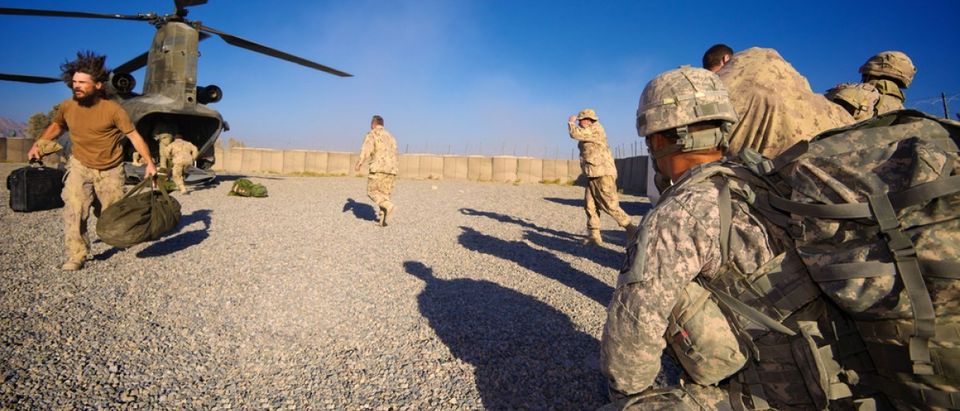The current mark-up of the National Defense Authorization Act (NDAA) risks leaving behind thousands of interpreters who endangered their lives working with U.S. forces during the war in Afghanistan.
The provision of particular concern involves Section 1216 of the NDAA, which deals with the Afghanistan Special Immigrant Visa (SIV) program. The SIV program was created in order to allow Afghan interpreters who are under threat due to their work with U.S. military and government to immigrate to the U.S. With resurgence of the Taliban, al-Qaida and the rise of Islamic State, former interpreters face as great a threat to their lives as ever.
The current mark-up “severely restricts” interpreter eligibility and does not provide for much-need additional visas, according to Betsy Fisher, policy director of the International Refugee Assistance Project at the Urban Justice Center, an organization which helps interpreters through the legal process allowing them to immigrate to the U.S.
Fisher explained the language of the current mark-up would limit visas to only those who served in a off-base military and intelligence capacity. While a significant portion of the Afghan interpreters working with the U.S. were operating in a military fashion, Fisher noted there are thousands who worked in roles that were logistical and diplomatic who would not be eligible, despite their lives being in danger.
“We had lots of employees at embassies who were working with and protecting our diplomats,” said Fisher to The Daily Caller News Foundation.
When asked why lawmakers would restrict the program to military personnel, Fisher speculated there may be “a feeling that those are the people most at risk.”
According to Fisher, there are as many as 10,00 people currently in the Afghan SIV program process, but if the bill is passed as is, only 4,000 visas would be available.
Fisher says this is the first year since the program’s inception that additional visas have not been authorized. She noted the issue has historically had strong bi-partisan support, so there is hope that once the bill goes through committee mark-up, the provisions will be changed.
“It is vital to ensure that our Afghan allies have access to life-saving protection,” Fisher told TheDCNF. “We urge HASC members to ensure that adequate visas are allocated to the SIV program and that Afghans who provided sacrificial service–whether directly to our military or in other capacities–can reach safety.”
While the issues with the current iteration of the bill are problematic, Fisher also noted jurisdictional issues arise since the program technically falls under both the House Committee on Armed Services and the House Committee on the Judiciary.
Despite the impediments, Fisher and her colleagues at the International Refugee Assistance Project are confident that the bill will be updated to reflect what she believes is both a humanitarian and national security issue. Given that interpreters are crucial to U.S. foreign policy and defense, protecting them after the fact is crucial to the U.S. reputation for future policy goals.
Send tips to russ@dailycallernewsfoundation.org.
All content created by the Daily Caller News Foundation, an independent and nonpartisan newswire service, is available without charge to any legitimate news publisher that can provide a large audience. All republished articles must include our logo, our reporter’s byline and their DCNF affiliation. For any questions about our guidelines or partnering with us, please contact licensing@dailycallernewsfoundation.org.












